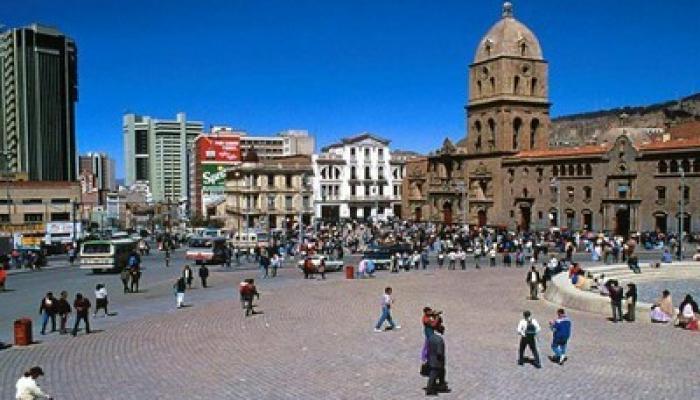The Summit of the Group of 77 plus China, June 14 and 15, in the Bolivian city of Santa Cruz will gather most UN member nations that make up the political South since that group, founded in 1964, gathers 133 out of all 193 members of the international organization.
The appointment of Bolivia to host the summit has been considered an acknowledgment by the South countries to the huge efforts of the indigenous population of the Andean country for decolonization and transformation and their prestigious leader Evo Morales, who has led these efforts since he was elected Bolivian president in 2006.
The Group of 77 has gain important prestige in its defense of the economic, political and cultural interests of the so-called underdeveloped countries, and the forum in Bolivia acquires significance given the current and undeniable trend towards the downfall of US supremacy and the surfacing of new world configuration marked over the past ten years by a fracture of the international order.
This is evidenced by the existence now of a strong center of resistance to US imperialism marked by liberalizing efforts in Latin America and the Caribbean, which is joined by a rapid consolidation of economic, political and military alliances by Russia, China, Iran and other countries in Asia, which reject their subordination to Washington’s foreign policy.
In this regards, the attitudes of China and Russia to prevent an imperialistic intervention in Syria have been crucial as well as the Russian response to the interference by the North Atlantic Treaty Organization in Ukraine, with the reincorporation of Crimea to the Russian Federation.
Now, the Bolivian position, based on Latin American-oriented thinking for the well-being of the Andean people, sparks favorable results at the summit of the Group of 77 to keep advancing the international , anti-imperialist, anti-colonial and anti-neoliberal agenda.
It is the Bolivian stance that opposes the excesses of financial capital to favor the rights of the people to control their own natural resources, to defend participatory democracy and the environment. It also backs the declaration of Latin America and the Caribbean a peace zone that opposes any foreign intervention, particularly US interference with the internal affairs of Venezuela and rejects the US economic blockade of Cuba, as it supports the Argentinean claim over the Malvinas islands, which the Brits call Falklands.
The Bolivian position fully supports and boosts unity and integration of all Latin American and Caribbean nations represented at the Bolivarian Alliance for the Peoples of the Americas, the South Common Market and the Community of Latin American and Caribbean States. (Source PL)
Related Articles
Commentaries
MAKE A COMMENT
All fields requiredMore Views
- Israeli TV producer’s call for Holocaust against Gaza population sparks outrage
- Russia will finance investment projects in Cuba
- Nicaragua withdraws from UNESCO after award to right-wing opposition newspaper promoting violence and destabilization
- Women's National Boxing Championship: a Tournament Full of Surprises
- Cuba denounces European silence on Gaza crimes


